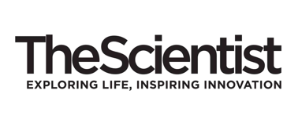The new policy will increase scrutiny and pressure on stem cell clinics, according to industry experts.

By Ashley Yeager
September 9, 2019
On Friday (Sept. 6), Google announced it would “prohibit advertising for unproven or experimental medical techniques such as most stem cell therapy, cellular (non-stem) therapy, and gene therapy.” The treatments, the company says in the statement, can have “dangerous health outcomes” and therefore have “no place” on the its platforms.
“Google’s new policy banning advertising for speculative medicines is a much-needed and welcome step to curb the marketing of unscrupulous medical products such as unproven stem cell therapies,” Deepak Srivastava, president of the International Society for Stem Cell Research, says in the statement. “The premature marketing and commercialization of unproven stem cell products threatens public health, their confidence in biomedical research, and undermines the development of legitimate new therapies.”
Some of these treatments have caused severe physical impairment, with several women going blind after receiving stem cell injections into their eyes. Scientists say many of the treatments’ claims are false, so the new policy could intensify scrutiny of the companies, according to The Washington Post. The US Food and Drug Administration has begun cracking down on the practices and marketing of stem cell clinics, which have otherwise largely skirted regulation.
“A number of us have pushed for this kind of policy over the years so this news is a welcome surprise,” University of California, Davis, stem cell biologist Paul Knoepfler tells The Post. He’s been criticizing the Google ads for stem cell treatments for years and says the move is a big deal because the ads recruited many of the same patients negatively affected by the treatments.
Andrew Ittleman, a Miami lawyer who represents several stem cell clinics, tells The Post the policy will damage companies with legitimate treatment claims. “It puts Google in the position of being a quasi regulator, taking on quite a significant amount of jurisdiction,” Ittleman says. “They’re painting the industry with a broad brush and companies with legitimate arguments are going to be collateral damage.”
The ban would go into effect in October, according to Fortune, and the company would not reveal how it would vet medical ads.
“The American Medical Association believes it is critical to distinguish between treatments that have been validated by appropriate scientific study, those that are promising, and those that are without foundation,” Patrice Harris, the association’s president, tells Fortune in an emailed statement. “We urge [Google] to make public the process they use to vet advertisements and what evidentiary standard they use for determining which treatments are appropriate to advertise.”
Despite the lack of details, proponents of the policy say it’s a big step forward and a long time coming. “These ads have been present on the Internet for at least 15 years—at least,” Sean Morris, chairman of the Society of Stem Cell Research, tells Fortune. “But better late than never.”
Click here to read the full article.

